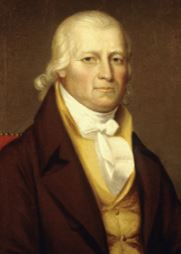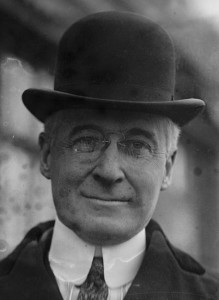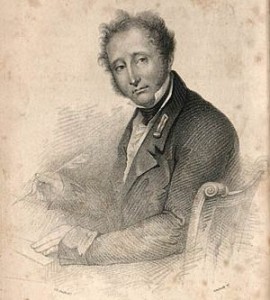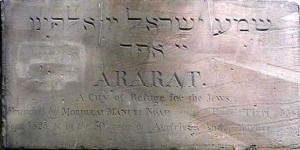Revolutionary War Hero
 Jonas Phillips (1736-1803) was born in Germany to an observant, Yiddish-speaking family. When he was 21, Jonah set forth for the New World. He first made his way to London, anglicizing his father’s name “Phaibush” to “Phillips”. There, he sold himself into indentured servitude in order to pay for his passage to America. After working several years on an indigo plantation, Phillips earned his freedom and moved to New York to work as a merchant. He became a wealthy man and married a prominent Sephardic Jewish woman, with whom he would have 21 children. Unfortunately, Phillips lost much of his wealth because of British restrictions on commerce. Not surprisingly, Phillips became a strong supporter of the American Revolutionary War, and joined the Philadelphia Militia. He fought valiantly, and earned a reputation as an American war hero. In 1787, he took part in the Constitutional Convention that drafted the United States Constitution. He played a key role in ensuring that the Constitution would protect people’s religious freedoms, and give equal civil rights to all citizens. Meanwhile, Phillips was a founding father of one of America’s oldest synagogues, Philadelphia’s Mikveh Israel. One of his grandsons became the Chief Justice of South Carolina’s Supreme Court, while another was America’s first Jewish commodore in the US Navy, and also a famous war hero. His great-grandson was a governor of South Carolina.
Jonas Phillips (1736-1803) was born in Germany to an observant, Yiddish-speaking family. When he was 21, Jonah set forth for the New World. He first made his way to London, anglicizing his father’s name “Phaibush” to “Phillips”. There, he sold himself into indentured servitude in order to pay for his passage to America. After working several years on an indigo plantation, Phillips earned his freedom and moved to New York to work as a merchant. He became a wealthy man and married a prominent Sephardic Jewish woman, with whom he would have 21 children. Unfortunately, Phillips lost much of his wealth because of British restrictions on commerce. Not surprisingly, Phillips became a strong supporter of the American Revolutionary War, and joined the Philadelphia Militia. He fought valiantly, and earned a reputation as an American war hero. In 1787, he took part in the Constitutional Convention that drafted the United States Constitution. He played a key role in ensuring that the Constitution would protect people’s religious freedoms, and give equal civil rights to all citizens. Meanwhile, Phillips was a founding father of one of America’s oldest synagogues, Philadelphia’s Mikveh Israel. One of his grandsons became the Chief Justice of South Carolina’s Supreme Court, while another was America’s first Jewish commodore in the US Navy, and also a famous war hero. His great-grandson was a governor of South Carolina.
Words of the Week
Brothers, half of the Palestinians are Egyptians and the other half are Saudis. Who are the Palestinians? Egyptian! They may be from Alexandria, from Cairo, from Dumietta, from the North, from Aswan, from Upper Egypt. We are Egyptians. We are Arabs.
— Hamas Minister Fathi Hammad on Al-Hekma TV (Egypt), March 23, 2012 (Click here to watch)



